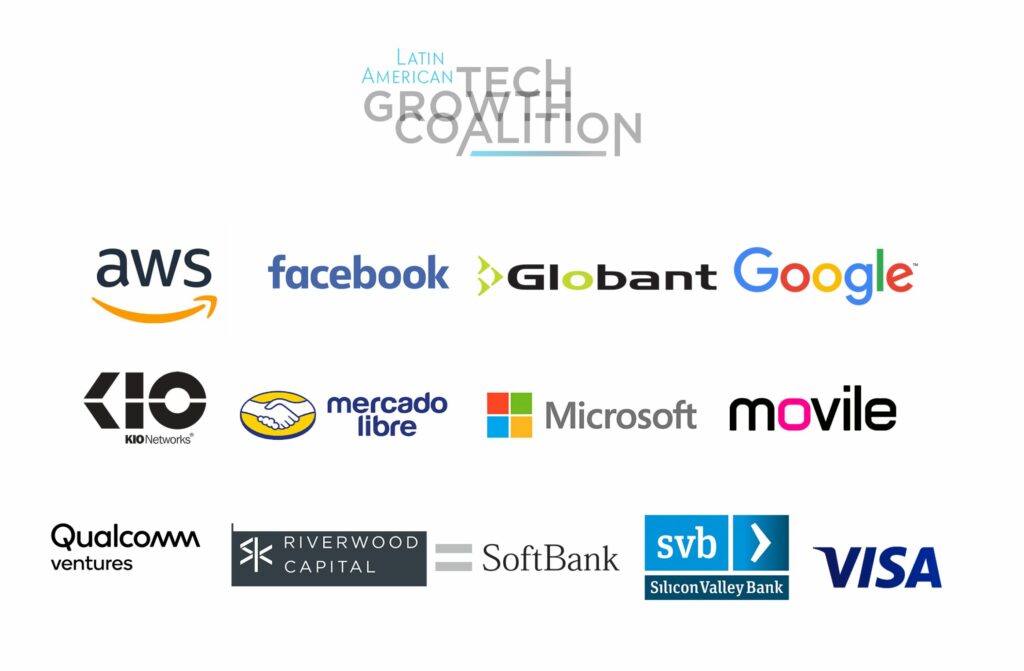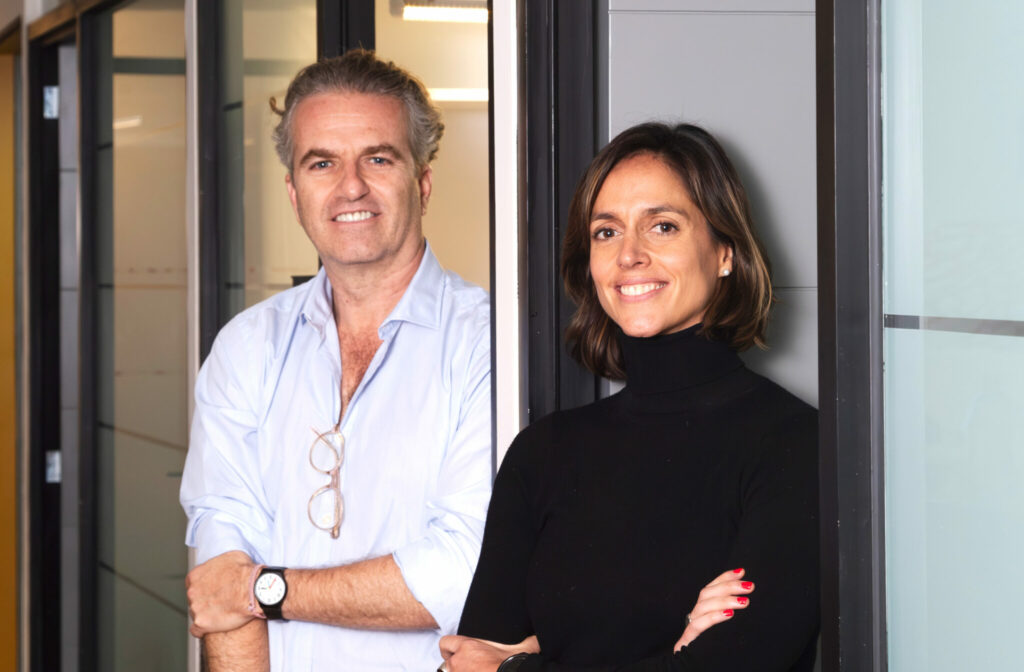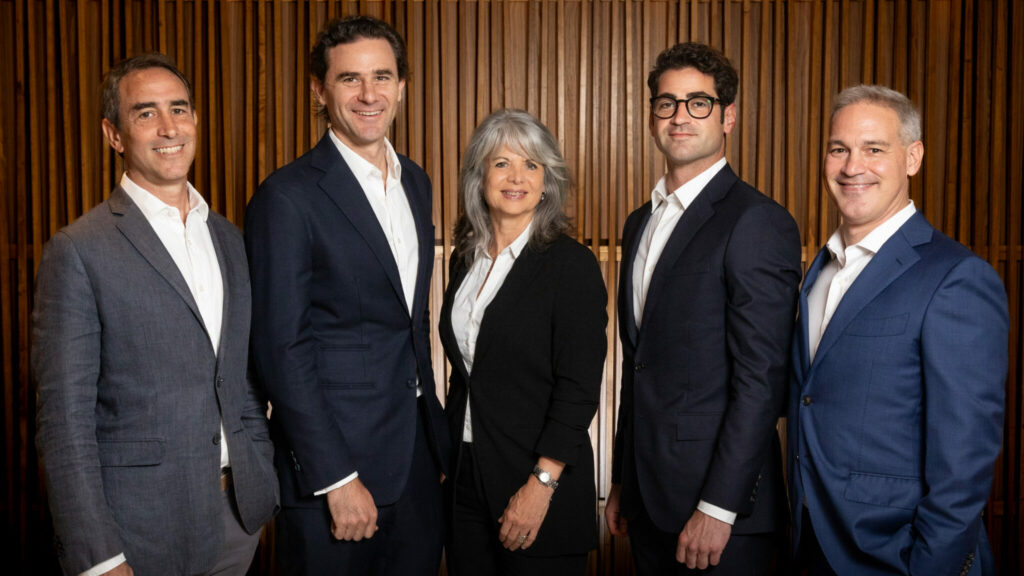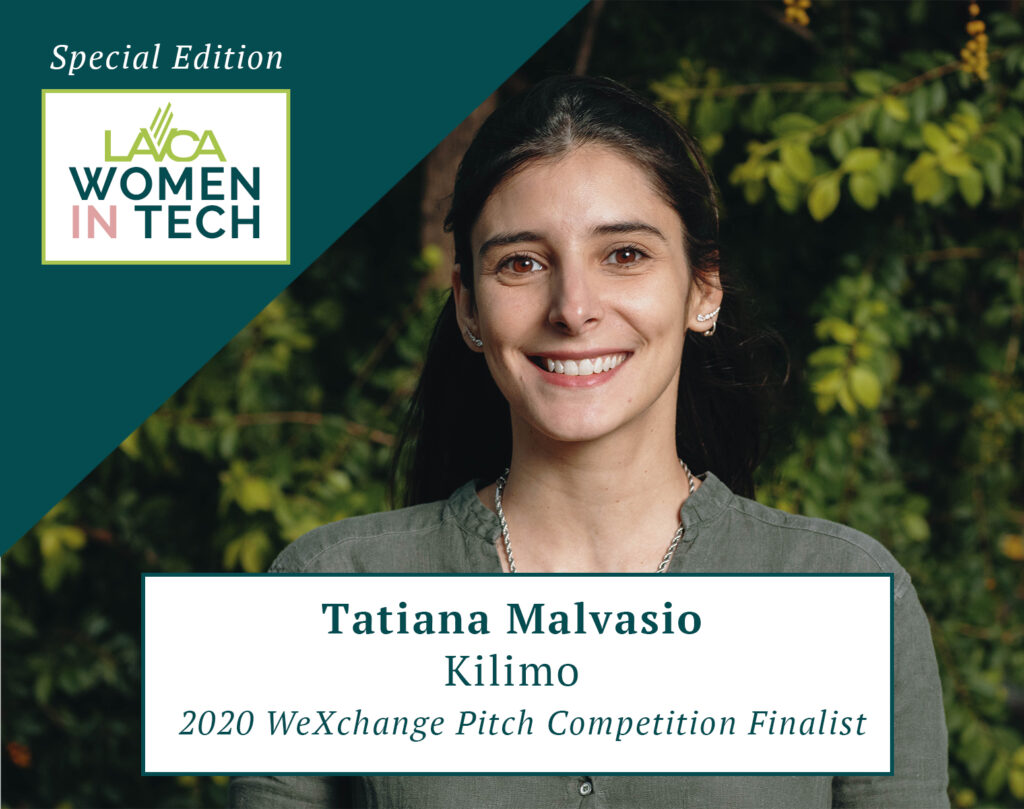Entrepreneur Profiles
Tech Growth Coalition: LatAm C19 Relief Efforts
9 June 2020

LAVCA’s startup research is supported by the Latin American Tech Growth Coalition, a unified effort of leading global and Latin American tech companies and investors to support high growth startups in Latin America.
Since the C19 pandemic began, Tech Growth Coalition members have stepped up with relief efforts in Latin America and globally, through a combination of capital-infused initiatives (including grants and donations), strategic partnerships, and lending tech infrastructure support.
Several Tech Growth Coalition members are also supporting CONECTADOS, a solidarity initiative in the LatAm tech community that connects companies and their employees with enabling organizations to support the Red Cross and healthcare workers.
Updates and Relief Efforts from Locally-Based Players
GLOBANT
Globant launched Taking Care, a tech initiative to support citizens, health systems, and governments during the crisis, including a real-time interactive dashboard to help local governments manage available beds, respirators, and other essential supplies, in each hospital and in real time; a project to distribute 3D printers to create medical supplies; a WhatsApp chatbot for people to monitor C19 symptoms and be referred to specialists; and CloserToYou, a project to locate nearby volunteers and ask them for help. Globant also pivoted its existing carpooling platform, Next2You, to enable medical professionals in Argentina to visit patients with symptoms.
Globant transitioned its entire workforce of 13,000 employees in 17 countries to remote work when the crisis began. Since then, Globant has been working closely with the Ministry of Health in Argentina on efforts to address the crisis.
KIO NETWORKS
KIO was informed early by collaborators in China about the likelihood of the pandemic reaching their markets of operation, and implemented a series of iterative working from home tests to implement employee feedback into their remote work strategy before social isolation guidelines were implemented in their markets of operation (Spain, Mexico, Panama, Guatemala, Dominican Republic).
95% of KIO’s ~2,400 employees have been working from home, with 5% tending to the company’s data servers and operational infrastructure. The company has not made any layoffs, is continuing with its recruiting efforts as planned, and is doubling down on support for employees, including:
- Partnering with Mexican healthtech platform PreVita to offer telemedicine services and drug deliveries to its employees, and purchased 1,500 COVID tests for its employees.
- Launching CerK De TI, a communication and engagement platform for employees that brings guests ranging from epidemiologists to children entertainers to support KIO families. Initiatives include virtual museum tours and programming focused on creating healthy habits from home.
- Hosting weekly conferences to inform employees about health precautions and the technical support needed to work from home, and regularly surveying employees. 80% are feeling optimistic about the future; 97% think they are working as well or better from home versus the office.
Fundacion KIO, the philanthropic arm of KIO Networks, grew its volunteer base from 28 to 150 employees during the crisis. Volunteers can donate their time to help small business clients get up to speed on tech developments; to call employees and check on their wellbeing; and to call elderly individuals identified by the company to be socially isolated from their families and communities.
MERCADO LIBRE
Mercado Libre has provided more than 10,000 hygiene kits, 43,000 kg of food and 36,000 sanitary kits to health professionals on an international scale; and also donated 100 computers to the Ministry of Health in Argentina to be distributed to public hospitals in need of additional infrastructure.
A landing page in the Mercado Libre marketplace allows visitors to donate to the Red Cross and local food banks. Mercado Libre also launched Cham Play, a virtual soccer tournament that served as a fundraising campaign for the Red Cross.
Mercado Libre also authorized a zero commission plan for all non-profit organizations participating in Mercado Libre Solidario, Mercado Libre’s fundraising and education platform for NGOs.
Mercado Pago, Mercado Libre’s internet payment platform, launched a R$600m credit line to fill the financing gap for microentrepreneurs with less than R$300k in annual revenue being impacted negatively by the crisis in Brazil.
In addition, Jose Masllorens of Mercado Libre started non-profit QuieroAyudar with colleagues in Argentina to connect users willing to help non-profits that need donations or volunteers. “Given COVID-19, we highlighted all the entities focused on providing food to people that are experiencing HUGE demand.”
MOVILE
Movile’s iFood launched multiple dedicated relief funds: A R$100m restaurant assistance fund to support partner restaurants during the crisis, and two dedicated R$1m funds, one for drivers over 65 years old (about 1% of iFood deliverers) and to those who are at risk, with lung diseases, cardiac disorders, immunosuppression (includes HIV), morbid obesity, diabetes, chronic renal failure, and cirrhosis; and another for couriers infected by C19 or displaying symptoms. iFood also allocated R$25m for health benefits for their delivery partners amidst the current crisis. The effort includes the launch of Fundo Solidário, an initiative to offer financial assistance to couriers who show C19 symptoms.
In addition, iFood users have donated 80 tons of food to date; iFood matched that amount to donate a total 160 tons of food for people at risk. iFood users tipped a record amount in April (R$2m), which iFood matched to recognize the heroic effort of its deliverers during the crisis. iFood is also anticipating payments to restaurants in partnership with Itaú/Rede.
Updates & Relief Efforts from Global Players
AWS
AWS launched AWS Diagnostic Initiative, a US$20m global initiative to accelerate COVID-19 research, and partnered with John Hopkins University to power a data-driven model to make predictions around exposure, contagions, and hospitalization rates across the US and internationally: “While the spread of the virus is now global, we have yet to grasp its full impact on human society. As we learn more about the spreading conditions of the virus, iterating over existing models will be crucial.”
AWS also released a webinar with strategies for AWS cost optimization for startups.
Facebook Messenger partnered with developers like Botmaker.com to provide free resources for government health organizations to combat the current crisis. Argentina’s Ministry of Health and Ministry of Innovation was one of the initiative’s first clients; Facebook is partnering with governments across the region to implement similar support bots.
Facebook joined Amazon, HP, IBM, and Microsoft in signing the Open COVID Patent Pledge to help make patents freely available in the fight against C19.
Globally, Facebook launched the Small Business Grant Program, a US$100m cash grant and ad credit initiative to support up to 30,000 small businesses on a global basis, and launched the Global Online Hackathon, an initiative to encourage developers to present local and global solutions to combat the C19 crisis.
Facebook also partnered with nonprofit consortium NetHope to expand internet access for people with limited connectivity during the crisis, including refugees and migrants.
Facebook for Startups curated a list of resources focused on providing support to small businesses around problem solving as well as cash flow and people management.
Facebook is posting regular C19 updates here.
In Brazil, Google launched Siga as 5 Dicas, a resource summarizing the WHO main recommendations on how to combat C19, and created an alert panel to spread reliable information from reliable sources including the WHO and Brazilian Ministry of Health.
YouTube Brazil and the Albert Einstein Hospital launched #FiqueEmCasa, a campaign to encourage Brazilians to stay at home and keep them informed of the most up-to-date developments of the pandemic.
Google also partnered with the Brazilian Ministry of Economy to participate in Todos por Todos, an educational platform offering free professional training courses available to all citizens, and partnered with Rede Mulher Empreendedora to launch Mentoria Gresça, a training platform offering free orientation sessions with mentors answering questions for small business owners in Brazil. Google for Education partnered with UNESCO’s Institute of Information Technology for Education to launch Ensine em Casa, a compilation of resources to support teachers during the pandemic.
Globally, Google allocated US$800m in capital and resources to support small businesses on a global scale, including US$250m worth of advertising space to be used by the WHO and government agencies worldwide to spread the latest developments on the pandemic; US$200m in credit lines to support NGOs and financial institutions; US$360m worth of Google Ad credits for small businesses with active accounts; and US$20m worth of Google Cloud credits for academic institutions and researchers.
Google.org destined US$100m to fund a range of C19 related efforts spanning direct cash grants through GiveDirectly, economic relief strategies, health projects, and distance learning initiatives. As part of the initiative, the company is sponsoring 50,000 hours from Google employees to support the chosen initiatives that will be financed through the program.
Google also launched the Emergency Aid Fund for Journalism, an initiative to support small media outlets that produce high-quality news focused on regional communities; and launched a series of Community Mobility Reports showing how people’s movements in different countries are changing with the C19 pandemic.
MICROSOFT
Microsoft collaborated with AWS, Facebook, Pinterest, TikTok, Slack, WeChat, and other leading tech companies on the #BuildforCOVID19 Global Hackathon, with submissions from over 20,000 developers for tech-driven solutions to address problems related to the crisis. 89 projects have advanced to the next stage.
Microsoft for Startups is supporting startups globally to extend their runway, upskill their teams, and focus on the business. Resources include:
- Open Source Startup Support Doc, collating relevant resources from Microsoft and third party organizations.
- Webinars & Office Hour Sessions, available for all startups, ranging from technical to strategic decision-making topics with executives from Microsoft as well as partner VCs and mentors.
- Commercial Support for 120+ in-program startups that are working on C19 related solutions, from healthcare and remote work to supply chain and AI.
QUALCOMM VENTURES
Qualcomm’s Wireless Reach Initiative is partnering with MTM Tecnologia and ClearTech to launch Sange Verde e Amarelo, a free platform for blood donations in Brazil to counter blood bank’s shortages due to the C19 crisis.
A number of companies in Qualcomm Ventures’ Latin America portfolio have made notable efforts towards C19 relief:
- Brazilian logistics platform CargoX set aside R$30m to fund truck transport of essential goods.
- Brazilian proptech QuintoAndar issued a R$2.5m credit line to pay brokers and partners in advance; launched a platform for partners to access discounts; and launched another platform for Brazilian self-employed professionals and small businesses to share their offerings during the crisis.
- Hilab, a Brazilian provider of biomedical equipment and telemedicine technology, launched a C19 diagnostic test and a portal for medical information related to C19.
Qualcomm also donated US$1m to the Chinese Red Cross to support the purchase of medical
treatments and equipment.
RIVERWOOD CAPITAL
Riverwood Capital is a partner in CONECTADOS, a solidarity initiative in the LatAm tech community that connects companies and their employees with enabling organizations to support the Red Cross, through triple impact donations and direct support for healthcare workers. Partners include GoIntegro, whose technology is powering a one-step donation process to the Red Cross in multiple countries in the region; LAVCA, KaszeK Ventures, Endeavor, and others are supporting the project.
In terms of supporting its portfolio in Latin America, Riverwood helped portfolio companies raise over US$75m with first-tier lending/banking partners to ensure liquidity to run company operations; is supporting negotiations for a number of acquisitions; helped engineer a portfolio-wide review of key tech suppliers; and is holding regular operational reviews with companies.
In addition, Ana Gilligan of Riverwood Capital collaborated with the City of Buenos Aires on their efforts reaching out to the private sector and individuals who live outside of Argentina to donate relief funds to the city.
SOFTBANK
SoftBank’s Latin America Fund shared an updated outlook on the current crisis to investors, partners and entrepreneurs. Of note:
The current crisis has illustrated the inextricable links that tie all of us together – companies, investors, governments, and the people we serve. It’s why we’re especially proud of our companies’ steps to support their communities like Gerando Falcões, a food security program in Brazil sponsored by Banco Inter and Rappi, and food donation events sponsored by Buser. Creditas has gone a step further, creating the Leadership Fund, with salary contributions from the executive team to support short-term needs of current and former employees, and joining Estímulo 2020, an initiative to support small business owners and entrepreneurs.
> SoftBank committed to supplying 300m masks per month to Japan, and donated 1.4m masks to New York. SoftBank also donated 100,000 masks to Colombia, Mexico, Argentina and Bolivia.
SVB
SVB’s COVID-19 Response & Community Support efforts include a US$5.5m commitment to C19 charitable relief initiatives spanning health, food security and shelter, and small business relief. The assistance will take the form of corporate contributions, community in-kind assistance, and a 3:1 match for employee’s donations to causes in their area.
SVB partnered with Founders Pledge to launch the COVID-19 Global Impact & Innovation Fund, a US$1m vehicle to fund organizations that are focused on slowing the spread of the virus and providing immediate relief to those affected. The fund is open to public donations.
SVB is working with industry groups and government leaders in the US, UK, and other nations to help design and implement small-business economic relief programs to create stability and prepare for recovery. In the US, SVB has been an active participant of the PPP program, and received more than 5,500 applications, of which more than 3,600 were processed through SBA’s online system, representing approximately US$2.2b in relief, as of April 16.
SVB is also supporting emergency small business grants of US$10k through Hello Alice’s Business for All Initiative, an effort that aims to link women and Hispanic-owned businesses to relief programs and funding opportunities.
Debt relief efforts include a venture debt principal deferral program that has enabled 1,000+ startups to defer their principal payments for six months on loans of US$10m or less, for a combined US$2.1b in funded debt. SVB also launched a US$600m relief fund for US-based companies that have outstanding debt obligations with the bank.
VISA
In Brazil, Visa partnered with Rede Mulher Empreendedora through its Cities of the Future Program to host Elas Prosperam, an online series aimed at supporting the creation of female local entrepreneurial networks. Visa Brazil also launched Vai de Visa, an online platform for Brazilian small businesses that encourages customers to help their local communities and buy local. Entrepreneurs do not need to have a payment terminal to be part of the initiative.
In the Dominican Republic, Visa partnered with Banreservas, the country’s largest bank, to distribute a temporary subsidy called Quedate en Casa to households nationwide. Visa’s support is also enabling families to access their funds at the points of sale, without having to stop by an ATM before making their food supply purchases.
In Guatemala, Visa is offering Visa Direct, its instant payment platform, to enable immediate deposits of the Bono Familia emergency funds program to its beneficiaries. These funds will also be readily available at any point of sale that accepts Visa cards.
Visa Ventures is also actively supporting its portfolio companies in Latin America during the crisis, including Conductor, a Brazilian payments processing platform, YellowPepper, a provider of mobile banking and payment solutions to financial institutions in Latin America, and Miami-based BaaS platform NovoPayment.
Globally, Visa Foundation, Visa’s philanthropic arm, announced US$210m in charitable donations, grant making, and impact investing. US$200m will be deployed in the form of grants and impact investments in small businesses over the next five years; US$10m will provide emergency relief to charitable organizations directly responding to the current crisis through public health and food relief efforts.
Visa is also collaborating with governments to raise contactless limits globally and help meet the growing demand for safe, secure digital payments through tap-to-pay technology.
You may be interested in...
-

Is AI a Thing in Latin America? In Conversation with Hi Ventures
LAVCA sits down with Hi Venture to discuss their evolving thesis and vision for...
-

The Future of B2B Startup Investing in LatAm: In Conversation with NXTP
NXTP Ventures recently reached a USD98m final close for NXTP Fund III, its third...
-

A 20-Year Journey: An Interview with Technisys CEO Miguel Santos
Company: Technisys Investors: KASZEK, Dalus Capital, Riverwood Capital Interview...
-

Satellite Analytics & Irrigation Systems: Interview with Kilimo COO Tatiana Malvasio
Company: Kilimo Investors: NXTP Ventures, Alaya Capital, The Yield Lab, Xpand...